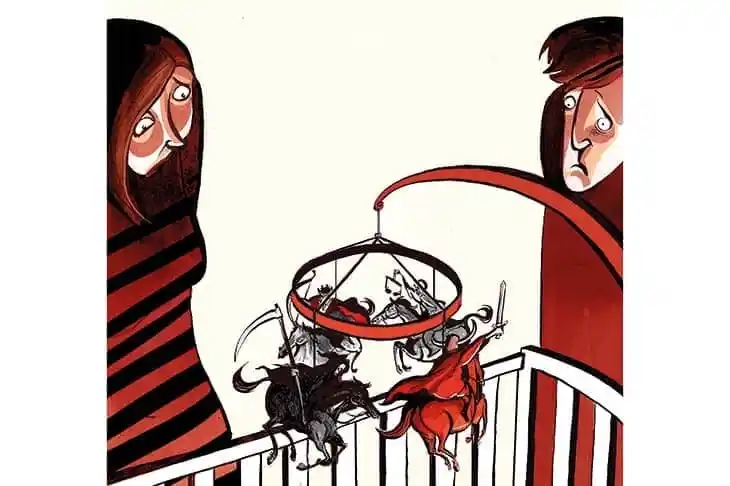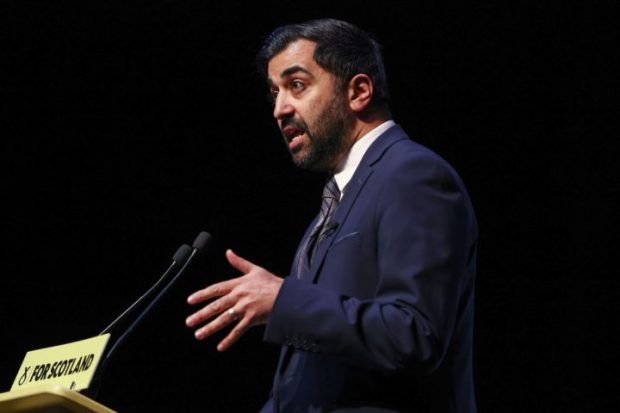It almost certainly wasn’t Vinice Mabansag, the baby born in the Philippines last Tuesday and picked out by the UN to personalise the occasion, but somewhere in around about now someone will be born who really does take the world’s population to eight billion. It is a landmark which has attracted the usual Malthusian handwringing about over-population. The fact that the UN decided that the threshold was going to be passed during the COP27 climate conference is surely not coincidence. But far from fearing the eight billionth person on Earth we should instead openly celebrate the occasion. Indeed, there may well come a time when human civilisation looks back fondly at when the population was still growing.
This is what should really worry us: not further population growth, but the prospect of it going sharply into reverse
Why has the population grown from 1 billion to 8 billion in the two and a bit centuries since 1800? Not because humans have suddenly turned into rabbits, breeding like mad to offset high rates of mortality. On the contrary, the success of the human species over that period is as much to do with the lack of deaths as surging numbers of births. Since 1800, global life expectancy has grown from 29 years to 71 years. On just about any measure – hunger, literacy, access to clean water, deaths for natural disaster – the quality of life has improved along with its quantity. There are eco-romantics, like the anthropologist Jason Hickel, who insist that people were better off in the good old days, before colonisation robbed noble peasants of their access to the commons. But most people will accept that for most people the quality of life has undergone an extraordinary transition for the better over the past two centuries – and that this has occurred in spite of the regular, grim predictions of Malthusians who say it cannot continue: that mankind will inevitably run into a barrier at which wealth will reverse into mass poverty.
Of course, it is foolish to believe that a trend will necessarily continue indefinitely. At some point, long before we reached the absurd point where the Earth is so stacked with people that we are standing shoulder to shoulder like hens in a factory farm, living standards would inevitably plummet. But is there any reason to believe that 8 billion, or anything like it, is the tipping point?
Given that the world seems to have little problem in keeping the world supplied with food – hunger and undernourishment has continued to fall this century, but for a minor blip over the past couple of years – it is hard to see that we have reached that point, nor that we are anywhere close. The proportion of the Earth’s surface given to agricultural is still remarkably small – 38 per cent, according to the UN’s Food and Agriculture Organisation. This includes areas of extensive grazing. The proportion of land used for crops is only a third of this. Moreover, agricultural efficiency and yields continue to improve sharply so that we need less land to feed ourselves – the area of farmland per capital fell from 0.45 hectares in 1961 to 0.21 hectares in 2016. This is in spite of more of the world’s population adopting that bete noire of environmentalists: the animal protein-rich diet.
There is another reason not to worry about population: humans appear to have found a way of levelling off their numbers without relying on disease or malnutrition to do the job for them: simply by breeding less. It seems to happen in every society: as people become wealthier, they produce fewer children. In the past half century, the rate of population growth has already slowed from 2 per cent a year to less than 1 per cent a year. At this rate, the global population will peak this century.
But that, it seems, is not soon enough for some. The 8 billion population threshold has been hit upon by climate activists as yet one more of the signs of impending doom. According to John Vidal writing the Guardian, talking about population is a taboo that climate campaigners have been reluctant to discuss but must now be brave enough to breach. ‘The hard fact is that in an age of climate breakdown, human numbers matter,’ he writes. ‘And the ecological impact of another 2-3 billion humans matters.’
It all seems rather inconsistent, given that Vidal – like many others – has previously expressed his opinion that Britain, and presumably other countries too, should have no trouble in reaching net zero emissions by 2050. Surely, if 8 billion people can succeed in emitting no net carbon emissions the same ought to be true of 10 or 11 billion people.
Contrary to the assertion that it is a taboo, environmentalism has long been associated with anthropophobia. Last year, a UK-based charity Population Matters awarded Harry and Meghan a ‘change champions’ award – along with a very useful $925 towards their security bill at their Montecito mansion – for their ‘enlightened’ decision to have no more than two children. Perhaps it ought to have gone posthumously to the Duke of Duchess of Windsor for producing none at all, but not to worry. There are many who have far more negative attitudes towards babies. A year ago Tom Woodman revealed in these pages the remarkable fear of bringing children into the world which now seems to afflict some young people, thanks in large part to climate hysteria.
This is what should really worry us: not further population growth, but the prospect of it going sharply into reverse. In common with many developed countries, Britain’s Total Fertility Rate, at 1.61, is already well below replacement rate. The population is only growing thanks to greater longevity and migration. Globally, however, we cannot rely on migration to maintain population – unless it is from Mars. The way the world is going we could, in a century’s time, be facing population collapse as sharp as population growth in the 19th and 20th centuries. It may be hard to comprehend this at present, but we can be pretty sure that it will bring serious problems, with ever fewer people of working age to support a still-growing cohort of the elderly. How we may yearn then for the days of a rapidly-growing global population.
The post Ignore the climate doomsters: we should celebrate our 8 billion population appeared first on The Spectator.
Got something to add? Join the discussion and comment below.
Get 10 issues for just $10
Subscribe to The Spectator Australia today for the next 10 magazine issues, plus full online access, for just $10.





















Comments
Don't miss out
Join the conversation with other Spectator Australia readers. Subscribe to leave a comment.
SUBSCRIBEAlready a subscriber? Log in